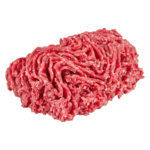FDA proposed new funding across multiple aspects of food safety, believing that they must invest to prevent problems from happening by further implementing of FSMA. For Fiscal Year 2017, FDA Center for Food Safety and Applied Nutrition responded to 794 recall events due to issues such as microbial contamination and undeclared allergens and oversaw the recall of 3,609 products. Whole Genome Sequencing (WGS) has made it easier to determine the source of contaminated food associated with human illness, and to better identify foodborne outbreaks. FDA intends to extend its use. Efficiently tracking and tracing regulated products is another area of focus. Using emerging technologies, including blockchain, to allow the FDA to intervene in time to alert consumers, implement recalls, and avoid human illnesses. FDA also is working to secure the safety of imported foods, requesting more resources to focus on import oversight. @ https://www.fda.gov/NewsEvents/Newsroom/PressAnnouncements/ucm633864.htm
ruth
New steps to strengthen FDA’s food safety program for 2020 and beyond
ruth
The U.S. Department of Agriculture’s Food Safety and Inspection Service (FSIS) announced That La Rosita Fresh Market Inc., from Mt. Prospect, Ill. retail store, recalled approximately 54 pounds of raw ground beef products that may be contaminated with E. coli O157:H7. The raw ground beef items are ground in the store and packaged for consumers behind the meat counter in varying weights. The raw ground beef items were packed on March 13, 2019, and March 14, 2019. These items were only sold in the La Rosita Fresh Market Inc. retail store, located at 1805 W. Algonquin Rd., Mt. Prospect, IL, 60056. The problem was discovered on March 14, 2019, by FSIS investigators through routine product sampling. There have been no confirmed reports of adverse reactions due to consumption of these products. @ https://www.fsis.usda.gov/wps/portal/fsis/topics/recalls-and-public-health-alerts/recall-case-archive/archive/2019/recall-033-2019-release
La Rosita Fresh Market Inc., a Mt. Prospect, Ill. retail store, is recalling approximately 54 pounds of raw ground beef products that may be contaminated with E. coli O157:H7.
ruth
The U.S. Food and Drug Administration issued its final rule and the new compliance dates for the agricultural water requirements in the FDA Food Safety Modernization Act (FSMA) Produce Safety Rule. Larger farms are now required to comply with the agricultural water requirements by January 26, 2022, while small farms have until January 26, 2023, and very small farms until January 26, 2024. This rule does not change the compliance dates for sprout operations. The FDA intends to use the time until compliance to work with stakeholders to address these concerns. FDA remains firmly committed to incorporating lessons learned from these recent outbreaks, and to using the best science available to help minimize the risk that produce can become contaminated. As we continue to work with stakeholders on issues raised regarding the agricultural water requirements, FDA strongly encourages farms to ensure that water is suitable for its intended use and to continue using good agricultural practices to maintain and protect the quality of their water sources. Farms are responsible for ensuring that the food they produce is not adulterated. @ https://www.fda.gov/Food/NewsEvents/ConstituentUpdates/ucm633483.htm?utm_campaign=Agricultural%20Water%20Provisions_3_15_2019%20Email&utm_medium=email&utm_source=Eloqua
FDA issued a rule to finalize the new compliance dates for the agricultural water requirements in the FSMA Produce Safety Rule.
ruth
The Packer reports that green leaf suppliers start receiving requests from customers for guarantees that its lettuces and products were safe. Customers also demanded that the produce be tested by laboratories to assure lack of contamination. Producers have taken steps such as installing 13-foot fences and hiring a guard to walk around the crops at night. The California Department of Food and Agriculture announced in February on-farm inspections at large farms — those with $500,000 or more in sales — will start in April under guidelines going into effect this year to validate compliance with the Produce Safety Rule of the federal Food Safety Modernization Act. Another big issue for growers is the labor shortage. Growers are increasingly turning to the H-2A program to find workers, and taking housing into their own hands to supply workers with affordable places to live. @ https://www.thepacker.com/article/e-coli-outbreak-effects-linger-leafy-greens-growers?mkt_tok=eyJpIjoiTkdVM09XSTRNRFJtT1RnNCIsInQiOiI3NjZHZGJ3RXRudGUyQWVOMUtERGV5VnkyNE1NRHp3NytaNVgzRnFYY3h0c2huT0xzTlVMemxzK3NzXC9MTlhMY2VicGsyQzdwTnlhNk9NUitEcHRHRDlWUUtSSFwvUVFOSkdqSkd4N1duVzhLYWxFSzNUdGJUeFRDQWhpcjNDY0ptIn0%3D
Vegetable growers of red and green leaf lettuce, romaine lettuce, cauliflower and broccolini, among other crops, is feeling a ripple effect from last year’s multistate E. coli outbreaks and subsequent recalls.



